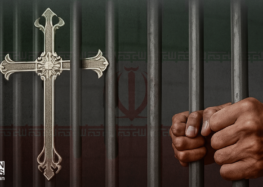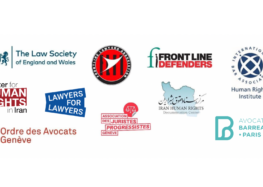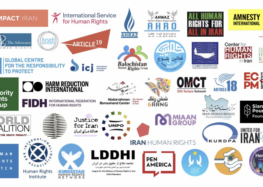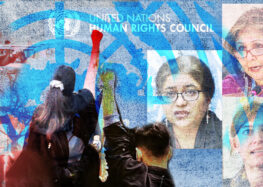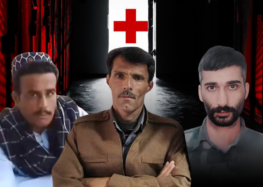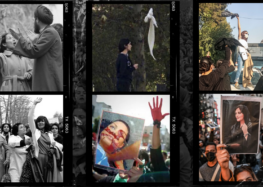121 Executions In Six Weeks: Prosecutor General Confirms Secret Birjand Executions
According to the statistics compiled by the International Campaign for Human Rights in Iran, 121 individuals have been hanged between 20 December 2010 and 31 January 2011.
Only one day before two United Nations Special Rapporteurs asked the Islamic Republic of Iran for a moratorium on executions and a visit by the Rapporteurs, Iran’s Prosecutor General noted executions inside Birjand Prison, and spoke of more executions during the coming days. But these executions have not been reported by official sources, such as the Prosecutor’s website and the South Khorasan Judiciary’s website, increasing concerns that numerous secret executions are taking place around the country.
On 31 January 2011, Fars News Agency reported that Mohseni Ejei told a press conference, “At dawn this morning, several drug traffickers were executed in Birjand, and over the past several days, also, several drug traffickers were executed in Tehran and Karaj.”
The International Campaign for Human Rights in Iran has received reliable information from local sources that as many as fifty inmates have been executed inside the Birjand Prison over the past few months. Much like executions that have been taking place inside Mashad’s Vakilabad Prison, referenced in the UN Special Rapporteurs’ statement, the Iranian Judicial authorities have refrained from reporting the widespread executions. An informed source told the Campaign that over the past five months, more than 50 drug offense suspects have been executed in this prison. As no information has been released about such executions, the Campaign continues its research for details in this matter. The Prosecutor General’s statement about the Birjand executions is a significant confirmation of the news.
News of the Tehran and Karaj executions referenced by Mohseni Ejei on 31 January has also not been previously published in government media or the Iranian Judiciary’s websites. Over the past several months, the International Campaign for Human Rights in Iran has published information about executions carried out inside prisons such as the Vakilabad Prison in Mashad and Birjand Prison, which have never been announced by the Judiciary. According to a local source, the Birjand executions, like the executions in Vakilabad Prison, are carried out suddenly and without the knowledge of families and lawyers of the prisoners.
According to Iranian laws, families and lawyers of death row convicts must be informed prior to their execution.
Mohseni Ejei’s statements about the Birjand executions at his 31 January press conference, are an indication of the secret executions in Birjand Prison.
Since Mohseni Ejei took office as the Islamic Republic of Iran’s Prosecutor General, executions in Iran have gained tremendous speed. In addition to the announced executions, the number of secret executions that are not announced to the media by the Iranian Judiciary has also increased. In some weeks, the number of unannounced executions is several times more than announced executions.
In an earlier press conference on 11 October 2010, the Proscutor General had said that “according to orders from the Head of the Judiciary for uniform treatment of drug traffickers, their cases have been forwarded to the Prosecutor General’s Office,” and that he had ordered Prosecutors nationwide to put drug traffickers on trial in the shortest time possible and not show any mercy in carrying out their sentences.
During the same press conference, he even implicitly said that some of those executed were only low-level workers for the main drug-dealers:
“Some of the people who are found in possession of drugs are not the main drug dealers and do not financially benefit from this; the main drug dealer hires these individuals and deceives them while he is sitting in a safe place himself, another individual is prosecuted and even executed in his place,” he said during the 11 October 2010 press conference.
Trusted sources have told the International Campaign for Human Rights in Iran that there are many ambiguities in the cases of hundreds of death row prisoners with drug-related crimes. Considering the new order of the Prosecutor General for speedy trials, or speedy executions, there is concern that the trend toward more widespread executions will continue over the coming weeks and months.
At the 11 January press conference, Mohseni Ejehi also reported on executions of one individual in Ilam and one in Kerman, about which, according to Campaign research, there have been no reports in any of the official Iranian media.
Campaign research shows that in some death penalty cases, the verdicts were based on confessions obtained under duress and torture inside the Anti-Trafficking offices under the oversight of the Police, Detective Units, Police Detention Centers, the Republican GuardsIntelligence Unit, and the Ministry of Intelligence.
Government media have reported of executions of 24 individuals between 21 to 31 January. Previously, the International Campaign of Human Rights in Iran published a list of executions carried out between 20 December 2010 and 20 January 2011. According to statistics compiled by the Campaign, between 20 December 2010 and 31 January 2011, 121 individuals were hanged in Iran. These statistics do not reflect several executions which were carried out in Birjand Prison and other prisons such as Karoon and Sepidar Prisons in Ahvaz, and the Taibad Prison, about which the Campaign has also received execution reports.
The 24 recent executions are as follows:
2, one in Ilam and one in Kerman, as announced by the Prosecutor General on 11 January, Fars News Agency
1, Abdolreza Ghorabat, in Karoon Prison in Ahvaz, 29 January, Tagheer website and Fars News Agency
1, Zahra Bahrami, in Tehran’s Evin Prison, 29 January, Fars News Agency
3, Orumiyeh Prison, 27 January, IRNA News Agency
7, Ghezel Hessar Prison in Karaj, 27 January, IRIB Central News Unit
1, political prisoner Farhad Tarom, Oroumiyeh Prison, 26 January, Kurdistan Media
2, Bojnourd Prison, 24 January, Northern Khorasan Judiciary
2, political prisonerss Jafar Kazemi and Mohammad Ali Haji Aghaei, Tehran’s Evin Prison, 24 January, ISNA News Agency
3, Evin Prison, 24 January, Evin Prison, ISNA News Agency
1, public hanging in Karaj, 24 January, Fars News Agency
1, Yasouj Prison, 23 January, ILNA News Agency

